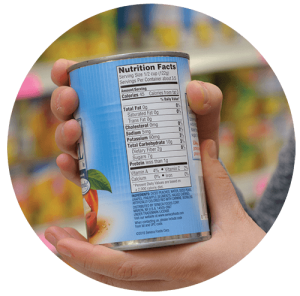 Fresh steamed vegetables and broiled fish accompanied by brown rice and a lovely spinach salad, finished off with a bowl of seasonal fruit for dessert may sound like a nutritious, healthy meal that almost anyone could prepare, however, Dr. Nina Roofe, assistant professor of nutrition and dietetic internship director, at the University of Central Arkansas knows this idea is only realistic for some consumers.
Fresh steamed vegetables and broiled fish accompanied by brown rice and a lovely spinach salad, finished off with a bowl of seasonal fruit for dessert may sound like a nutritious, healthy meal that almost anyone could prepare, however, Dr. Nina Roofe, assistant professor of nutrition and dietetic internship director, at the University of Central Arkansas knows this idea is only realistic for some consumers.
“We can prepare the most nutritionally balanced plate of food,” Roofe said, “but if people don’t know where to buy the ingredients or how to prepare the food, then we haven’t helped anyone.”
Helping people become healthier through proper nutrition is the goal of every registered dietitian nutritionist, including Roofe, who recently received a grant on behalf of UCA from the Produce for Better Health Foundation.
The foundation grant is aimed at motivating local consumers to eat more fruits and vegetables. It allows Roofe to collaborate with a grocery store in eastern Conway to provide grocery store tours and in-store demonstrations.
“We could bring you to our campus, sit you in a classroom and tell you that you need to buy more fruits and vegetables,” Roofe said. “Instead we look at your grocery list, and we go to the store with you and show you.”
Earlier this year, Roofe, as well as an entourage of 10 graduate-level dietetic interns and 41 senior-level nutrition students from UCA, converged on the grocery store for a tour.
The team collected samples of fresh, frozen, canned and dried fruits and vegetables. They performed cost-per-unit comparative analyses, as well as taste tests.
“I was surprised at the cost of dried fruit and the sugar content,” said Deidra Strom, a senior nutrition student. “You have to pay close attention to serving sizes when it comes to dried fruit. Your label is your friend.”
The tour and in-store demonstrations last for about an hour. As part of the visit, students tasted the produce in various states and reviewed recipes.
The students and dietetic interns paid close attention to the comparison of fresh and frozen fruits and vegetables.

Vincent Suha, a senior nutrition student, said, “A lot of people don’t consider frozen veggies and fruits.” He continued, “There are so many applications that you can use frozen vegetables and frozen fruits that are just as good as anything else, and it will often be cheaper because you can get a larger amount.”
The 41 senior nutrition students were taught to conduct these grocery store tours by the 10 dietetic interns. The undergraduate students are then required to take the lessons they learned through the in-store tours and teach three more people each.
“We are going to potentially reach 123 people, or 133 when you count the interns,” Roofe said. “We assume that we are going to touch more people and we are really hoping for a ripple effect.”
That ripple effect includes follow-up contact this fall with the 123 consumers who were given grocery store tours by senior nutrition students.
“That’s the thing with community practices,” Roofe said. “Sometimes it looks like you are just having fun, but there is a strategy behind it.”
The Produce for Better Health Foundation stipulated that grantees develop a partnership with local grocery stores, which allowed Roofe to collaborate with Harps Foods in eastern Conway.
 “We work with individuals and families in their communities, where they are,” Roofe said. “Our goal is to take the learning to them. We wanted to start where we thought the need was greatest.”
“We work with individuals and families in their communities, where they are,” Roofe said. “Our goal is to take the learning to them. We wanted to start where we thought the need was greatest.”
The $32,000 grant is renewable, and Roofe believes the funds can be secured for several more semesters to buy more supplies, continue and expand grocery store partnerships and conduct more tours with more consumers.
“We are hoping for that opportunity to share something with consumers that they may not know, and by giving these tours we are given that opportunity,” Suha said. “It is very rewarding.”